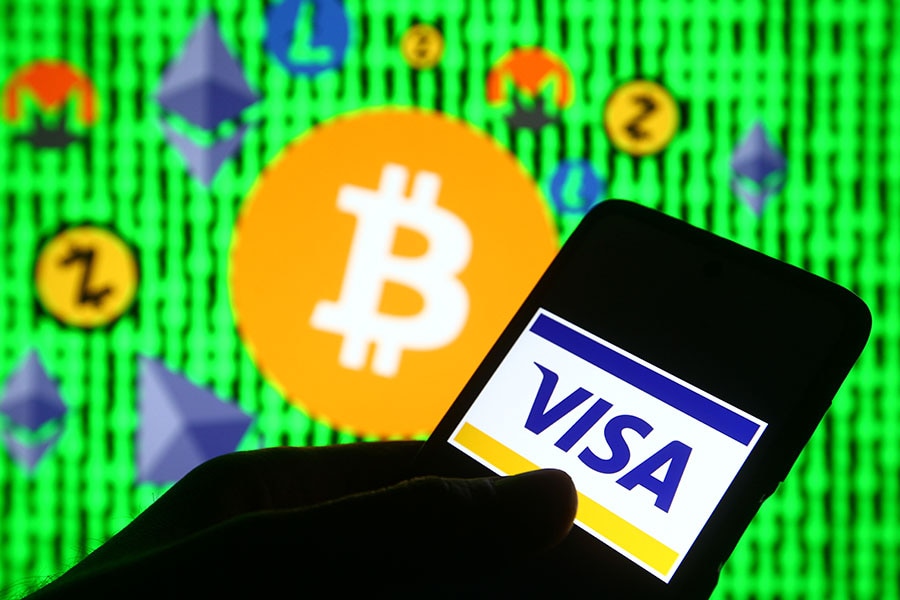
Visa Pioneers Cross-Border Payment Revolution with Solana and USDC Integration
Visa's integration of Solana and Circle's USDC stablecoin marks a major leap in cross-border payments, causing Solana to surge by nearly 2%
 Photo Illustration by Pavlo Gonchar/SOPA Images/LightRocket via Getty Images
Photo Illustration by Pavlo Gonchar/SOPA Images/LightRocket via Getty Images
In a significant move that could reshape cross-border transactions, Visa, the global payment powerhouse based in San Francisco, has taken a giant stride by integrating Circle's USDC stablecoin with the high-speed Solana blockchain, marking Visa as one of the pioneering financial institutions to leverage Solana for large-scale settlements.
Visa's commitment to enhancing cross-border payments has been propelled by integrating Circle's USDC stablecoin with the Solana blockchain, renowned for its swift performance. This strategic move underscores Visa's dedication to adopting cutting-edge technology to provide modern and efficient solutions for its clients. This groundbreaking development has already yielded positive results, as Solana's native crypto, SOL, experienced a significant surge of nearly 2% in response to the announcement.
However, Visa's innovation continues beyond integrating USDC and Solana. The company has embarked on pilot programs with prominent merchant acquirers, Worldpay and Nuvei, which process debit and credit card payments for businesses globally. These programs empower Visa's clients to opt for USDC stablecoin settlements instead of traditional fiat currencies, ushering in a new era of digital currency adoption.
Visa's journey into stablecoins and blockchain technology began in 2021 when it commenced testing USDC for its treasury operations. Further demonstrating its commitment to innovation, Visa ran a successful pilot program with Crypto.com, utilising Ethereum's blockchain to settle cross-border payments made with Crypto.com Visa cards.
However, when settling cross-border transactions conducted through Crypto.com Visa cards, the process involved time-consuming multiday currency conversions and the accumulation of wire transfer fees. As a result, the crypto exchange has now shifted its approach, opting to employ USDC to meet settlement requirements related to its Australian Visa card.





